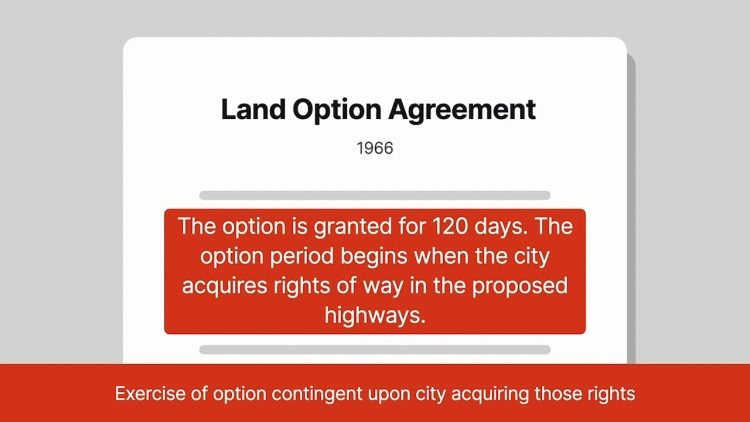United Virginia Bank/Citizens & Marine v. Union Oil Company of California
Virginia Supreme Court
197 S.E.2d 174 (1973)

- Written by Eric Cervone, LLM
Facts
In 1966, William Abbitt and Union Oil Company of California (Union Oil) (defendant) entered an agreement. This agreement granted an option to purchase land at the intersection of two proposed highways in the City of Newport News. The option was granted for a period of 120 days, but the option period would not start until the city acquired the right-of-way to the new highways. Union Oil later assigned the agreement to Sanford & Charles, Inc. (Sanford) (defendant). United Virginia Bank/Citizens & Marine (the bank) (plaintiff) was the executor of Abbitt’s estate. The bank sued, arguing that the agreement was void and unenforceable, because it violated the rule against perpetuities. The bank contended that, at the time the agreement was executed, it was not known when, if ever, the city would acquire the right-of-way to the highways. The option could vest more than 21 years from the date of the agreement. Sanford countered that the highways were supposed to be completed by 1987, less than 21 years from the date of the agreement. Alternatively, Sanford asked to have the agreement reformed through the doctrine of cy pres to make the option contingent on the city’s acquiring the rights within 21 years. Finally, Sanford asked the court to apply the wait-and-see doctrine. Under this doctrine, if the contingent event actually occurs within 21 years, the rule against perpetuities would not apply, and the agreement would be valid. The trial court held that the agreement was valid and enforceable. The bank appealed.
Rule of Law
Issue
Holding and Reasoning (Carrico, J.)
What to do next…
Here's why 907,000 law students have relied on our case briefs:
- Written by law professors and practitioners, not other law students. 47,100 briefs, keyed to 996 casebooks. Top-notch customer support.
- The right amount of information, includes the facts, issues, rule of law, holding and reasoning, and any concurrences and dissents.
- Access in your classes, works on your mobile and tablet. Massive library of related video lessons and high quality multiple-choice questions.
- Easy to use, uniform format for every case brief. Written in plain English, not in legalese. Our briefs summarize and simplify; they don’t just repeat the court’s language.





